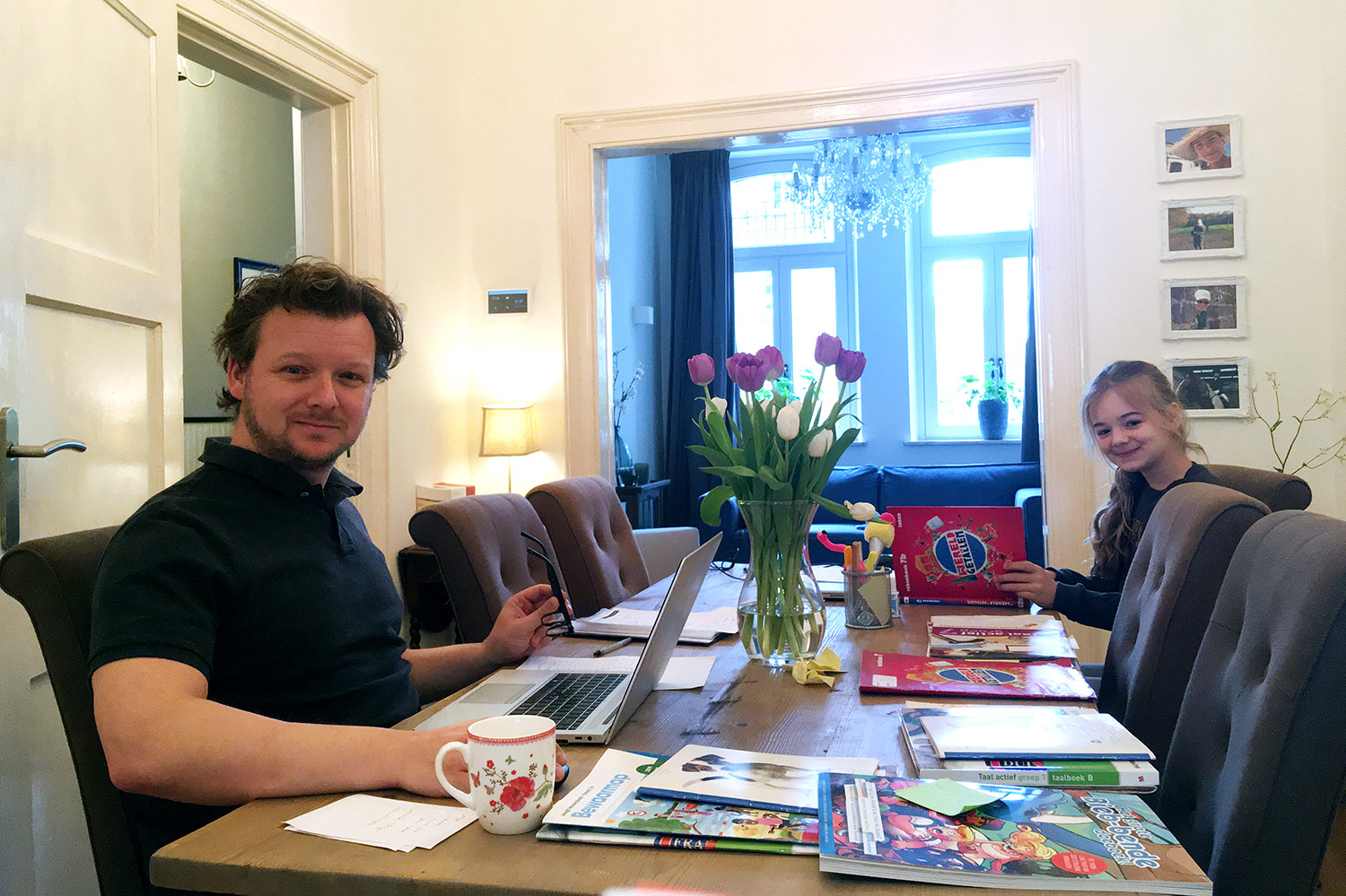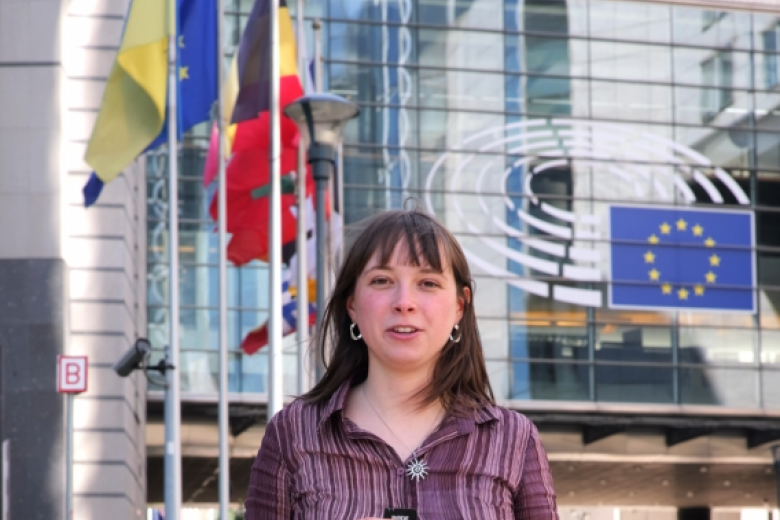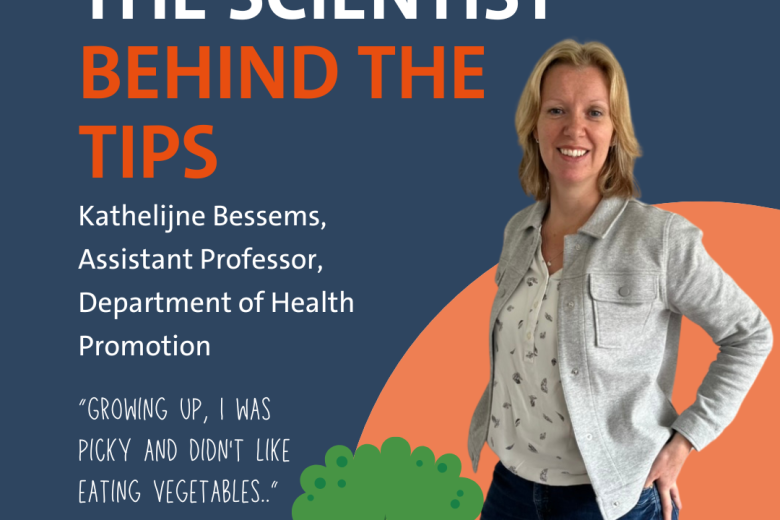Mark Levels and social order in times of corona
As research leader of the international consortium Technequality, he was due to speak last week at the AI Summit in Brussels organised by the journalism platform Politico. The measures to limit the spread of coronavirus threw a spanner in the works. Other than that, for Professor Mark Levels of the Research Centre for Education and the Labour Market (ROA), it’s business as usual these days - although his alarm clock is going off earlier than usual, and after-work drinks are now held online.
“Everything’s still going on as normal. Much of my work can be done remotely; I often call and email my colleagues to keep on top of things. Many meetings are now held via Skype or Zoom, but that’s no problem. One of the research projects we initially had concerns about is a field experiment in Germany where we’re monitoring people’s productivity during the rollout of a particular technology. The outbreak falls right in the middle of the observation window. But as long as people are not officially banned from going to work, the experiment will continue. Ironically, one thing we’ll now be able to measure is the impact of corona on employee productivity. If the quality of the data is adequate, we’ll definitely do something with it. The only things that have actually been cancelled are outreach activities for Technequality. Last week I was due to speak about AI at a summit in Brussels, and I’d planned to visit the SER to talk about Technequality. This week we were supposed to be in Munich, talking with representatives of the German government, business and unions about a future strategy to prepare Germany for the consequences of the AI revolution. All that’s been shelved. But it’s okay - it’ll happen some other time. ”
How are you organising distance education?
“I’m teaching a course on social order at UCM in block 5, on the role of markets, states, individuals, groups, networks and institutions in the production of (dis)order in society. I’m keeping in mind that we might have to teach the course remotely in April and May as well. We’ll record the lectures, and have students make a vlog instead of giving a physical presentation. We can run the tutorials via Zoom or Skype - that should be perfectly fine. We’re getting a lot of support in our efforts to find solutions. Nicolai Manie and his team have created a very informative website (https://www.maastrichtuniversity.nl/period-5-and-6-teachers) that I highly recommend. And UCM is savvy when it comes to tips and tricks. It’s admirable how quickly people are throwing things together. ”
Are you acquiring practical knowledge that you can put to use in education or research?
“What’s happening now has direct implications for my teaching. Recently, my colleague Per Bles and I revised and updated our UCM course. But what we’re seeing all around us right now is pure sociology of social order. Why do people hoard supplies? Why do they ignore the social-distancing recommendations? What role should the government play? The theoretical mechanisms that we’ve been teaching all this time in the abstract are now happening live, on the street and in the papers. We have to do something with that! So last week we decided to adapt the course again to reflect the current situation created by the corona pandemic. We’re going to restructure the course so that students can use theories of social order to understand what’s happening around us. Social Order in Times of Pandemic - that’s the new working title. It’ll be a lot of work, but we’ll manage.”
Is your experience in leading an international project like Technequality an advantage for the current work situation?
“Technequality is a large, international project with many different partners. Coordinating such a complex club requires a seamless, flexible and collaborative management style. We’ve become very pragmatic over the years, and therefore sufficiently agile. Our first review meeting with academics and the responsible officer of the European Commission was held online last week. For us it took some getting used to this, and because of the escalating crisis the agreements changed every hour. My colleague Raymond Montizaan and I shared our experiences with these types of meetings, quickly informed the consortium partners what was expected of them, and helped them make the necessary preparations for reporting remotely. Our project manager Maaike Bierman helped participants in England, Germany and Sweden with the practical preparations. So it all went very smoothly. Our previous experience with online meetings undoubtedly helps: because of the climate consequences, over the last few years we’d found it less and less justifiable to fly everyone in for regular meetings, so we were already doing most of the work for Technequality online. We’re now reaping the rewards.”
What consequences could the corona crisis have for the labour market?
“The economic forecasts don’t look good. The strategies used by world leaders to flatten the infection curve and limit the spread of the virus are epidemiologically sensible, and essential to prevent many unnecessary deaths. But closing shops, factories and borders and bringing transport to a standstill also leads to a huge long-term drop in both consumption and production. This crisis will disrupt the economy for a long time to come. Most of the economic analyses I’ve seen so far are bleak. It seems unlikely that we’ll be able to avoid a recession. If we do nothing, the labour market could be hit hard and long-term mass unemployment can’t be ruled out. Hence the substantial package of emergency measures announced by governments and central banks. As I see it, all these measures are necessary: what’s important now is keeping companies afloat to make sure they don’t have to fire people en masse. The question is whether our pockets are deep enough to support the business sector for as long as necessary. The ECB, the FED and our national governments seem to be aware of the urgency of the situation and willing to do whatever it takes. That’s encouraging. But let’s be honest: we have no experience with this, and nobody has a crystal ball. The course of the pandemic is much more predictable than the economic consequences.”
Can you describe your current working day for us?
“I had quite a few deadlines last week that I couldn’t miss: a new H2020 application that we’re coordinating at SBE, and a submission deadline for an article in Sociologie Magazine. I get up early - around five am - to do some writing before my wife and daughter wake up. My daughter’s home school starts at nine, so I can work until her online lesson is over at 11, then we eat a sandwich together. When she starts her homework, either my wife or I work at the same table so we can help her if needed. It’s not the most productive time for us, but you do what you can. The evenings are shorter than usual: because of the early wakeup, I go to bed earlier than usual. We’re still trying to find a good rhythm, but it’s doable. I do miss the contact with my colleagues - they’re all such nice people! Fortunately, one of my colleagues has opened a digital coffee corner for the ROA, so we can still see one another now and then. We also had our first virtual after-work drinks there.”

By: Mark van der Linde
Also read
-
Europe Day
To celebrate Europe Day on 9 May, FASoS student Lisa travelled to Brussels to meet with five of our inspiring alumni who are currently shaping European policy and advocacy. In this video, they share why Europe Day matters, how it’s celebrated in Brussels, and what the idea of Europe means to them.
-
The Green Office Catalyses Circularity Projects’ Autonomy
This semester, the Green Office cultivated the untapped potential of the Community Garden and the Clothing Swap Room. We hope that these Circularity Projects will operate under autonomous, functional organisations by this time next year, with continued support from the Green Office and the SUM2030 team... -
Evidence-based health tips for students: the science of eating healthy
In the upcoming months, we’ll share tips on Instagram for our students on how to live a healthier life. Not just a random collection, but tips based on actual research happening at our faculty. The brains behind this idea are L ieve Vonken and Gido Metz, PhD candidates at CAPHRI, the Care and Public...